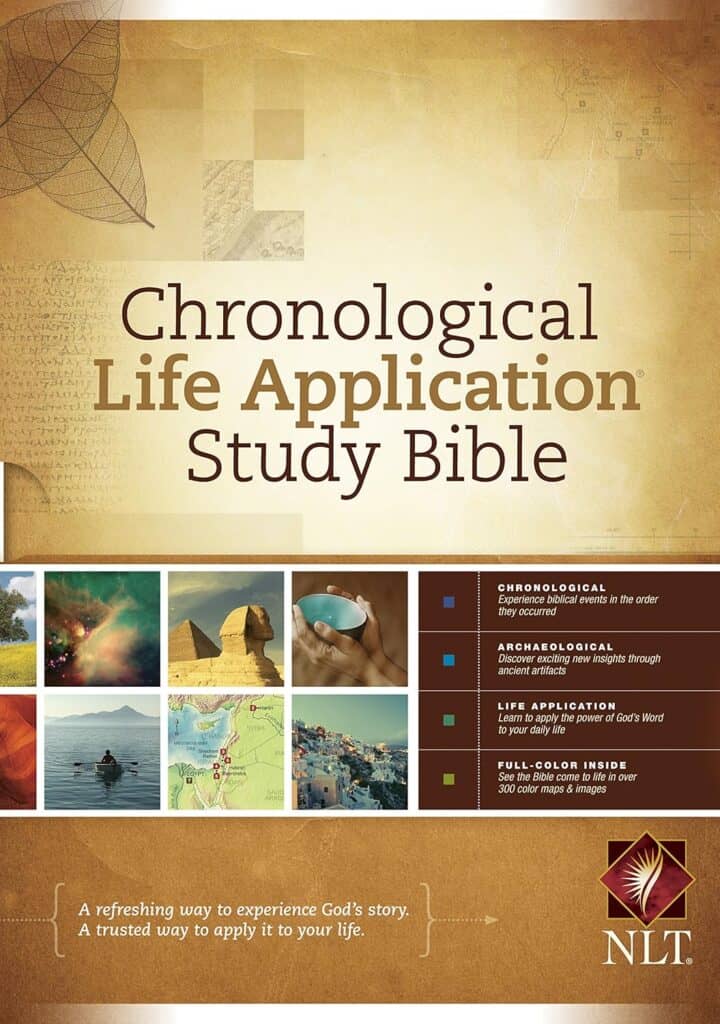Introduction
Let’s be real—learning how to study your Bible can feel overwhelming at first. You know it’s important. You want to understand it. But where do you even start? Do you just open to a random page and hope God speaks? Do you need a stack of commentaries, a study Bible, and a degree in Greek? And what about those parts that feel confusing or, let’s be honest, a little dry?
The good news? Studying your Bible isn’t about mastering a bunch of rules—it’s about knowing Jesus Christ better. The whole point of Scripture is to help us trust Him, walk in obedience, and love others. It’s not just about gathering knowledge; it’s about letting God’s truth shape us from the inside out. You don’t have to be a Bible scholar to get something out of your study time—you just need a heart that’s open to hearing from God.
So, whether you’re opening the Bible for the first time or just looking for better ways to dig in, these seven tips will help you make the most of your time in God’s Word. Let’s keep it simple, practical, and focused on what really matters—knowing Jesus and growing in faith.
1. Start with Prayer and the Holy Spirit
If you really want to know how to study your Bible, the best first step isn’t choosing a reading plan or grabbing a commentary—it’s prayer. Before you open the pages, take a moment to ask the Holy Spirit to guide you. He is the one who helps us understand God’s Word, not just as words on a page, but as life-giving truth.
Think of it this way: If you were trying to learn a new language, it would help to have a native speaker guiding you, right? Well, when it comes to Scripture, the Holy Spirit is that guide. Jesus told His disciples that the Spirit would teach them all things and remind them of everything He had said. That same promise applies to us today. The Bible is a spiritual book, and we need God’s help to truly understand it.
“But the Advocate, the Holy Spirit, whom the Father will send in my name, will teach you all things and will remind you of everything I have said to you.” — John 14:26 (NIV)
Prayer isn’t just a warm-up for Bible study—it’s part of the process. It aligns our hearts with God’s and reminds us that studying Scripture isn’t just about gaining knowledge; it’s about growing in our relationship with Jesus Christ. Before you begin reading, simply ask, “Lord, open my eyes to see what You want me to see. Help me understand and apply Your truth.”
And here’s the thing—God loves to answer that prayer. Even if a passage seems confusing or challenging, trust that the Holy Spirit will lead you into understanding. Over time, you’ll begin to recognize His voice more clearly as you read.
So, before you pick up your Bible, pause. Pray. Invite God into your study time. He’s ready to teach you.
Verses to consider: John 14:26, 1 Corinthians 2:10-12
2. Choose the Right Bible Translation
One of the biggest questions people have when learning how to study your Bible is, “Which translation should I use?” With so many options out there, it can feel a little overwhelming. The good news is, you don’t need to overthink it—but choosing the right translation can make a big difference in how well you understand and apply Scripture.
Bible translations generally fall into three categories:
- Word-for-word translations – These aim to stay as close as possible to the original Hebrew and Greek texts. Examples include the New American Standard Bible (NASB) and English Standard Version (ESV).
- Thought-for-thought translations – These prioritize readability while still being faithful to the original meaning. Examples include the New International Version (NIV) and New Living Translation (NLT).
- Paraphrases – These are more like interpretations rather than direct translations. They can be helpful for devotional reading but are best used alongside a more literal translation. Examples include The Message and The Living Bible.
📖 Struggling to Stay Consistent in Bible Study?
Discover 10 simple, practical steps to make your Bible study deeper and more meaningful.
Why Get This Guide?
✅ Understand Scripture with clarity
✅ Avoid common study mistakes
✅ Apply God’s Word to your life
We respect your privacy. Unsubscribe anytime.
So, which one is the best? The answer depends on what you’re looking for. If you want something very precise for deeper Bible study, a word-for-word translation is great. If you’re looking for something easier to read and understand, a thought-for-thought translation might be a better fit.
“For the word of God is alive and active. Sharper than any double-edged sword, it penetrates even to dividing soul and spirit, joints and marrow; it judges the thoughts and attitudes of the heart.” — Hebrews 4:12 (NIV)
Another great tool to consider is a study Bible. These often include historical background, commentary, maps, and cross-references to help you dig deeper into Scripture. A good study Bible can bridge the gap between just reading and truly understanding the context of what you’re studying.
At the end of the day, the best Bible translation is the one you’ll actually read. Find one that speaks to you and stick with it. The more time you spend in God’s Word, the more it will come alive in your heart.
Verses to consider: Hebrews 4:12
3. Read in Context: The Big Picture Matters
One of the biggest mistakes people make when learning how to study your Bible is pulling a verse out of context. Have you ever heard someone quote a Bible verse and thought, “That doesn’t sound quite right”? That’s often because they’re reading it in isolation instead of considering the full passage.
To truly understand God’s Word, always ask these key questions: Who wrote it? Who was it written to? What’s the main message? Every book of the Bible was written to a specific audience, in a specific time, with a specific purpose. When we ignore that, we risk misunderstanding what God is actually saying.
For example, Jeremiah 29:11 (“For I know the plans I have for you…”) is often used as a personal promise of prosperity. But in context, God was speaking to Israel while they were in exile, reassuring them that He had a future for them as a nation. That doesn’t mean God doesn’t have good plans for us, but it does mean we should read the verse in light of its original meaning.
“Do your best to present yourself to God as one approved, a worker who does not need to be ashamed and who correctly handles the word of truth.” — 2 Timothy 2:15 (NIV)
Another way to see the big picture is by understanding how the Old Testament and New Testament work together. The Old Testament lays the foundation, pointing to Jesus, while the New Testament reveals the fulfillment of God’s plan in Jesus Christ. Studying both together gives a deeper, richer understanding of Scripture.
A great method for reading in context is the Inductive Bible Study Method, which focuses on:
- Observation – What does the text say?
- Interpretation – What does the text mean?
- Application – How does this apply to my life?
By reading the Bible in context, we avoid misinterpretation and grow in our ability to rightly handle God’s Word. So before pulling a single verse out of Scripture, zoom out and look at the whole picture—you’ll be amazed at what you discover.
Verses to consider: 2 Timothy 2:15
Also, it is good sometimes to read the Bible in chrosnological order. The bible is put together in various sections of historical, prophetic, poetic, the Gospels, letters, and end times. However, sometimes it interesting to read in chronological order and there are some great Bible versions to do that.

4. Use a Variety of Bible Study Methods
There’s no one-size-fits-all approach when it comes to how to study your Bible. Some days, you might want to dive deep into a single verse. Other times, you might want to zoom out and see the big picture. The good news? There are plenty of Bible study methods to keep your time in Scripture fresh and meaningful.
Here are a few great ways to dig deeper:
- Topical Studies – Pick a theme like grace, faith, or prayer and explore what the Bible says about it. This method is great for understanding key doctrines and applying them to your life. A topical study can be as simple as looking up every verse on a subject or using a Bible study guide to help.
- Chronological Order – The Bible isn’t arranged in strict historical sequence, so reading it in the order events happened can give you a fresh perspective. This approach helps you see how God’s plan unfolds from Genesis to Revelation.
- Word Studies – Ever read a verse and wished you understood the meaning behind a key word? A word study takes a deeper dive into the original Hebrew or Greek words used in Scripture. Tools like Strong’s Exhaustive Concordance or a Greek word dictionary can help you uncover the richness of biblical language.
“I have hidden your word in my heart that I might not sin against you.” — Psalm 119:11 (NIV)
Trying different study methods can help keep your Bible study journey exciting and rewarding. One day, you might do a topical study on love. The next, you might explore the historical background of a passage. The key is to stay engaged and let God’s truth shape you.
No matter which method you choose, the most important thing is to be in God’s Word consistently. Don’t be afraid to try something new—God will meet you in the pages of Scripture.
Verses to consider: Psalm 119:11
5. Take Notes and Highlight Key Words
A simple but powerful way to get more out of your Bible study is to write things down. When you take notes, highlight key words, and jot down insights, it helps you engage with Scripture on a deeper level. If you’re serious about how to study your Bible, keeping a journal can be a game-changer.
Here are a few ways to make note-taking part of your Bible study journey:
- Keep a journal – Write down what stands out to you, prayers inspired by your reading, and ways you can apply what you’ve learned. Even if it’s just a few sentences, journaling helps solidify what God is teaching you.
- Highlight important words – Certain words or phrases will jump out at you. Maybe it’s “faith” in Hebrews 11 or “abide” in John 15. Highlighting these can help you recognize themes and patterns across Scripture.
- Make connections – The Bible is one unified story. When you see a verse that reminds you of another passage, write it down in the margins or your journal. This helps you see how all of God’s Word fits together.
“These commandments that I give you today are to be on your hearts. Impress them on your children. Talk about them when you sit at home and when you walk along the road, when you lie down and when you get up.” — Deuteronomy 6:6-7 (NIV)
Writing things down not only helps with retention but also allows you to reflect on what God has been teaching you over time. Sometimes, you’ll go back and read old notes and realize how much you’ve grown in your understanding.
So grab a notebook, open your Bible, and start jotting down insights. You’ll be amazed at how much more you get out of God’s Word when you engage with it actively!
Verses to consider: Deuteronomy 6:6-7
6. Ask Questions and Seek Deeper Understanding
A key part of how to study your Bible is learning to ask the right questions. The Bible isn’t just meant to be read—it’s meant to be explored, wrestled with, and understood. When you slow down and dig deeper, you’ll find that Scripture becomes even more alive and meaningful.
Here are some questions to ask as you study:
- What does this passage mean? – Before jumping to application, take time to understand the text itself. What was the author trying to communicate?
- How does this apply to my own life? – The Bible isn’t just historical—it’s deeply personal. Ask God to show you how His truth applies to your daily walk.
- What is the historical background and cultural context? – Understanding the time period, customs, and audience of a passage can make a huge difference. A verse that seems confusing today might have been crystal clear to its original readers.
“Now the Berean Jews were of more noble character than those in Thessalonica, for they received the message with great eagerness and examined the Scriptures every day to see if what Paul said was true.” — Acts 17:11 (NIV)
Thankfully, we have plenty of resources to help us dig deeper:
- Bible commentaries – These provide scholarly insights into difficult passages.
- A good Bible dictionary – Helps define key words and concepts.
- A Bible atlas – Gives geographical context to events in Scripture.
- Parallel translations – Comparing different versions can shed light on meaning.
The Bereans in Acts 17:11 didn’t just take Paul’s words at face value—they examined Scripture daily to see if what he was teaching was true. We should do the same. Don’t be afraid to ask hard questions, look up historical context, and use good study tools. The deeper you go, the more you’ll see the richness of God’s Word.
Verses to consider: Acts 17:11
7. Apply What You Learn to Your Daily Life
At the end of the day, how to study your Bible isn’t just about gaining knowledge—it’s about letting God’s Word transform your heart and life. The Bible was never meant to be just an academic exercise or a collection of interesting stories. It’s God’s truth, given to us so that we can know Him, trust Him, and live in a way that honors Him.
Jesus didn’t say, “Blessed are those who can quote a lot of Scripture.” He said, “Blessed rather are those who hear the word of God and obey it.” — Luke 11:28 (NIV). That means Bible study isn’t complete until we actually live out what we’ve learned.
Here are some ways to apply Scripture to your daily life:
- Let God’s truth shape your actions – Ask, “How should this change the way I treat my family, my coworkers, or even strangers?”
- Let it shape your thoughts – When you feel anxious or discouraged, what Bible verses can you hold onto?
- Let it shape your relationships – The Bible teaches us to forgive, love, and serve others. How can you put that into practice today?
At its core, studying the Bible is about trusting Christ, walking in obedience, and loving others. It’s not about perfection—it’s about progress. Some days you’ll feel inspired, and other days you might struggle. But the more time you spend in God’s Word, the more it will shape you into the person He created you to be.
So don’t just read the Bible—live it. The real power of Scripture is unleashed when we put it into action.
Verses to consider: Luke 11:28








Leave a Reply